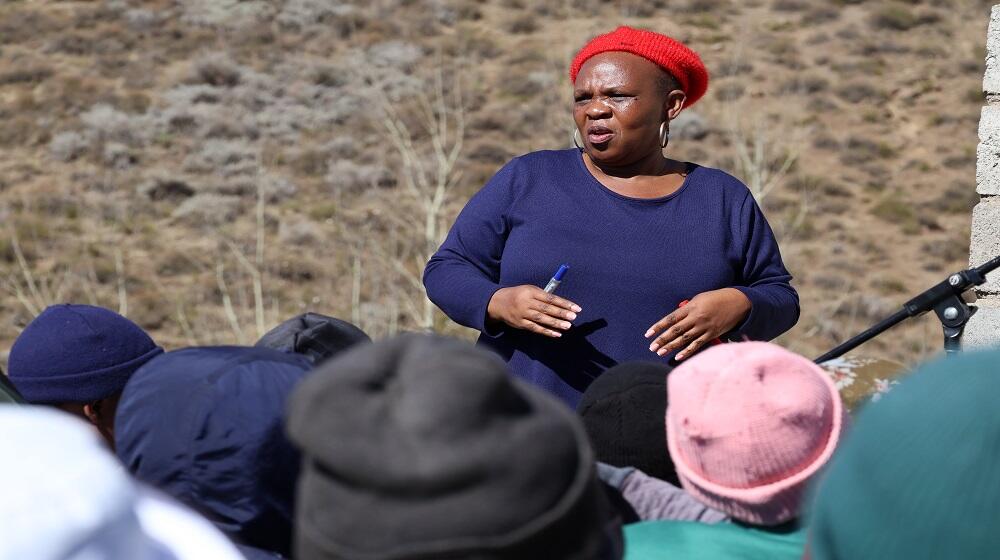At just 11 years old, Refiloe (a pseudonym for her protection) gave birth to a baby through caesarean section, in a remote health facility in Lesotho. As an orphan raised by her grandmother, Refiloe's pregnancy was only discovered when she was already six months along. She reached her 12th birthday when her baby was three months old. Her innocence had been shattered by a cruel act of sexual assault by a man known in her community. The police were informed and they did their part, however, she was kept at the health facility until she delivered her baby.
After giving birth, Refiloe was placed in the care of her aunt, and volunteers contributed to help her return to school. However, her grandmother has now taken her out of school due to fears that she might become pregnant again.
Refiloe’s story was related by the Ministry of Health’s Adolescent Health Manager Ms ‘Mathato Nkuatsana who has encountered numerous cases similar to Refiloe's in many areas especially in the rural areas of Lesotho.
In many villages in Lesotho, the future of a 10-year-old girl often follows a path fraught with challenges and uncertainties. She is likely to grow up under the care of her grandmother or be left to shoulder the responsibilities of raising her younger siblings. This reality stems from the harsh fact that her mother may have passed away or left to seek work in South Africa, labouring on farms or as a domestic worker.
As she navigates her early years, the prospect of marriage may come knocking far too soon. A marriage proposal, seen by some as a lifeline, could instead set her on a trajectory marked by hardship. If married young, she faces the high probability of early pregnancy—a life-altering event that poses serious risks. The complications of childbirth, compounded by her tender age, increase the likelihood of severe health issues like obstetric fistula, and in the worst cases, the tragic outcome of maternal or neonatal death.
“Most of the time by the time they reach 16 years, they leave their children with the grandmother and go to South Africa for employment, but they may also find love, dwindling the number of visits back to Lesotho to see the children and grandmother.”
As one grandmother shared her struggles while caring for 10 grandchildren left behind by their mothers, who have left to seek work in South Africa. "My daughters hardly ever come back or send money. I struggle with the children, some of whom have started menstruating. We often lack sanitary products, so I cut old clothes for the girls to use,” she lamented. This troubling cycle perpetuates as young mothers drop out of school, give birth, and leave their children with their grandmothers to seek employment across the border.
As reported by Ms. Nkuatsana, one 10-year-old girl, recently sexually assaulted, now lives in fear alongside her parents, who worry about retribution from the assailant— a stark reminder of the perilous situation for many families.
Child marriage in Lesotho is estimated at 24% and maternal mortality at 566/100 000 live births. While the Lesotho Demographic Health Survey of 2024, reported a slight decline in teenage pregnancy from 19% to 17%, these numbers still reflect an urgent need for action.
Recognizing this and the interconnections between sexual violence, child marriage, early pregnancies, and maternal mortality, UNFPA has initiated several targeted strategies. These include training healthcare providers and law enforcement on effective support for survivors, implementing policies that outlaw child marriage, and increasing accessibility to family planning services. Additionally, efforts aim to enhance the quality of maternal health services, ensuring that healthcare providers are equipped to handle complications that arise during pregnancy and childbirth.
The narratives of countless young girls like Refiloe act as urgent reminders of the systemic changes needed to protect and empower the vulnerable youth of Lesotho. UNFPA in Lesotho is therefore supporting efforts for establishment of safe spaces where young survivors can heal and receive support.


